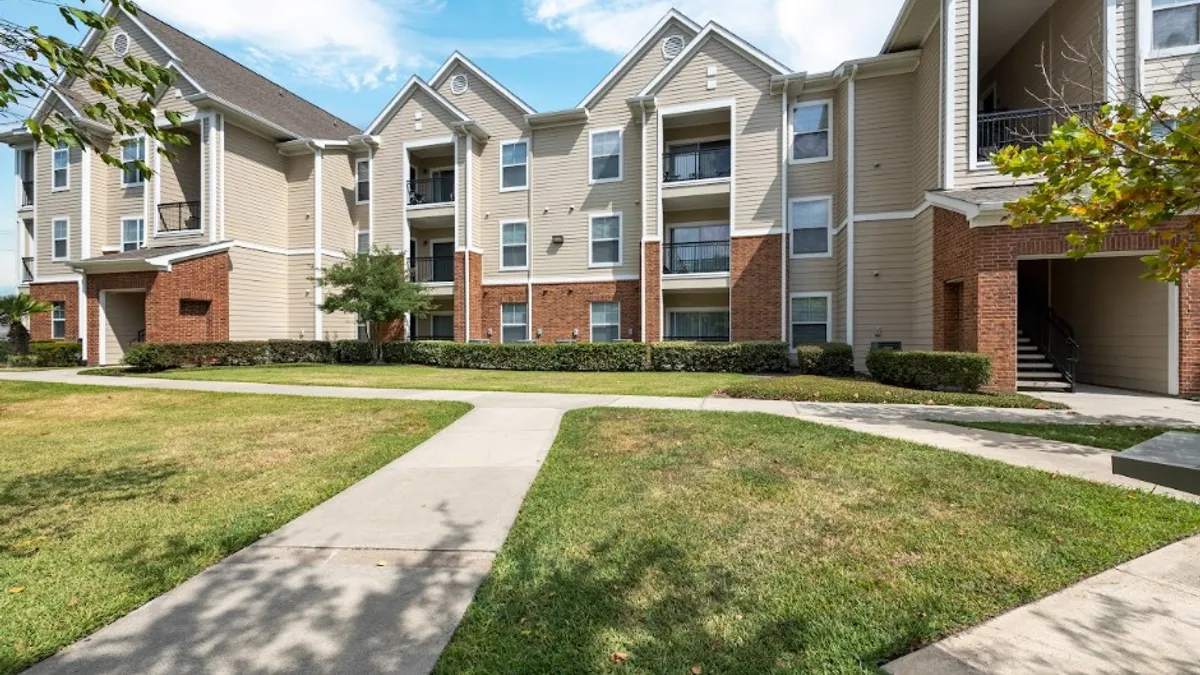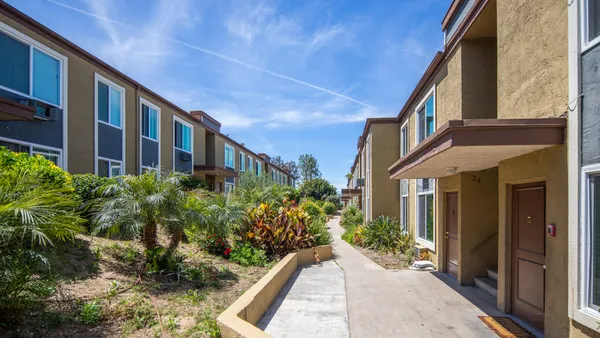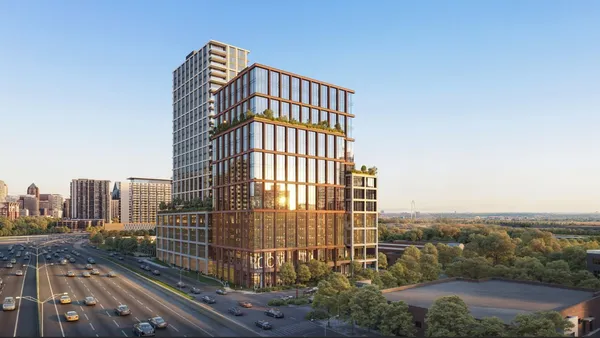Dive Brief:
- Apartment sales volume plummeted 71% year over year in January to $6.2 billion, according to a report that data firm MSCI Real Assets shared with Multifamily Dive. Despite the steep decline, transactions remain well above the $1 billion and $2 billion posted in the month following the global financial crisis of 2007-2009.
- Apartment prices fell 4.6% year over year in January and 10.3% since July when the declines began. Still, valuations in the public markets improved by 9.4% from December, according to MSCI.
- Both garden-style apartments (at $3.7 billion sold) and high-rise apartments (at $2.5 billion sold) saw double-digit year-over-year declines, according to MSCI. Garden properties were 59% below the average January in the five years before COVID-19, while high-rise apartments were down 33% from that timeframe.
Dive Insight:
An increase in interest rates, which hit 5.5% in the fourth quarter, is behind the market slowdown. With cap rates below interest rates — garden cap rates were at 4.7% in January and mid- and high-rise assets at 4.6% — investors would have to pay more for the debt portion of the capital stack than the equity segment.
When buyers pay more for debt, they’re counting on income growth. However, RealPage reported that apartment demand fell negative year over year in the fourth quarter, making that difficult to achieve.
In that climate, cap rates must rise before the market opens. Cody Kirkpatrick, managing director of New York City–based commercial real estate services firm Berkadia’s JV Equity and Structured Capital group, calls it “a period of adjustment.”
“We're seeing that there's still a bid-ask spread,” Kirkpatrick said.
Some owners may have a capital structure that forces them to put assets on the market, or they may face a refinancing risk. Otherwise, most firms are holding tight.
“Groups aren't really looking to sell assets into this market unless they have a forced event,” Kirkpatrick said.
Eventually, more owners may be forced to sell. Still, Mike Madsen, vice president of acquisitions and economics at Salt Lake City, Utah-based RealSource Properties, doesn't see the buyer’s market lasting that long.
“I don't think prices are going to fall in a lot of these areas as much as some people may hope,” he said.
Click here to sign up to receive multifamily and apartment news like this article in your inbox every weekday.











